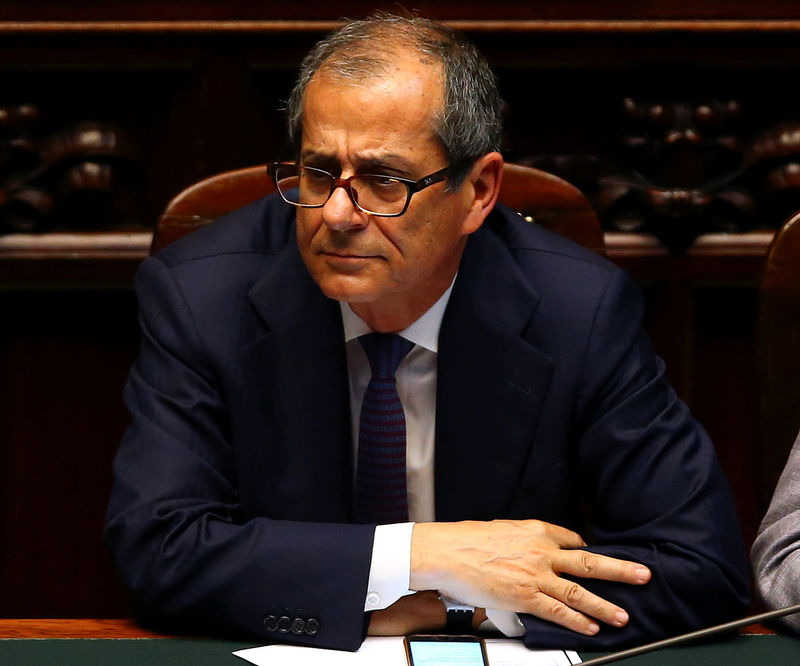 © Reuters. Italian Economy Minister Giovanni Tria attends during his first session at the Lower House of the Parliament in Rome
© Reuters. Italian Economy Minister Giovanni Tria attends during his first session at the Lower House of the Parliament in RomeMILAN (Reuters) – Italy’s economy minister has urged the ruling coalition’s two political leaders to tone down their comments on the forthcoming budget, Il Messaggero newspaper said on Thursday, amid fears of a speculative attack on the nation’s bond market.
Economy Minister Giovanni Tria, who is visiting China, telephoned deputy prime ministers Luigi Di Maio and Matteo Salvini on Wednesday to warn that inconsistent messaging on economic issues was damaging the country, the daily said.
In recent weeks, Tria has sought to reassure markets of the new government’s commitment to cutting its heavy debt burden while Di Maio and Salvini have demanded that the European Union allow their new government to pursue a more expansive budget.
Italian government bond yields fell on Wednesday on market speculation that Italy may try to secure help from the European Central Bank in the event of a speculative attack.
Italy has the heaviest debt burden among major euro zone economies, at about 130 percent of gross domestic product. Its 2019 budget is due to be outlined by the end of October and must be approved by the European Commission.
Underlining the nervous mood, La Repubblica newspaper featured prominently remarks made by credit rating agency Fitch in late June saying the main risk Italy ran was that expansionary fiscal measures could weaken debt dynamics.
Fitch will announce its decision on Italy sovereign debt rating on Friday.
Investors are concerned that tax cuts and welfare spending proposed by the ruling coalition of Di Maio’s anti-establishment 5 Star Movement and Salvini’s far-right League could send Italy’s mountain of debt higher.
Italy is scheduled to sell medium- and long-term debt at an auction on Thursday.
Fusion Media or anyone involved with Fusion Media will not accept any liability for loss or damage as a result of reliance on the information including data, quotes, charts and buy/sell signals contained within this website. Please be fully informed regarding the risks and costs associated with trading the financial markets, it is one of the riskiest investment forms possible.
Source: Investing.com





























